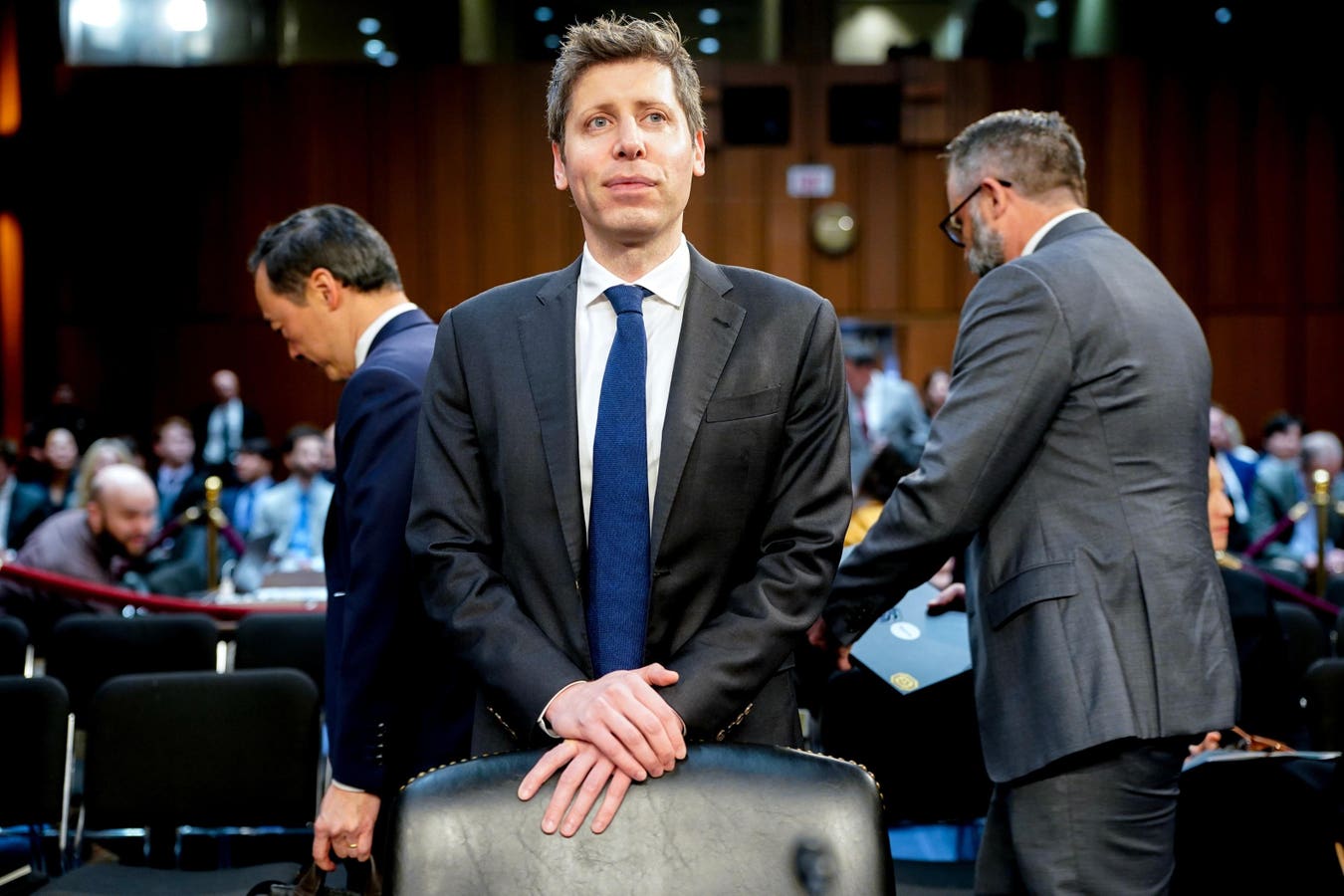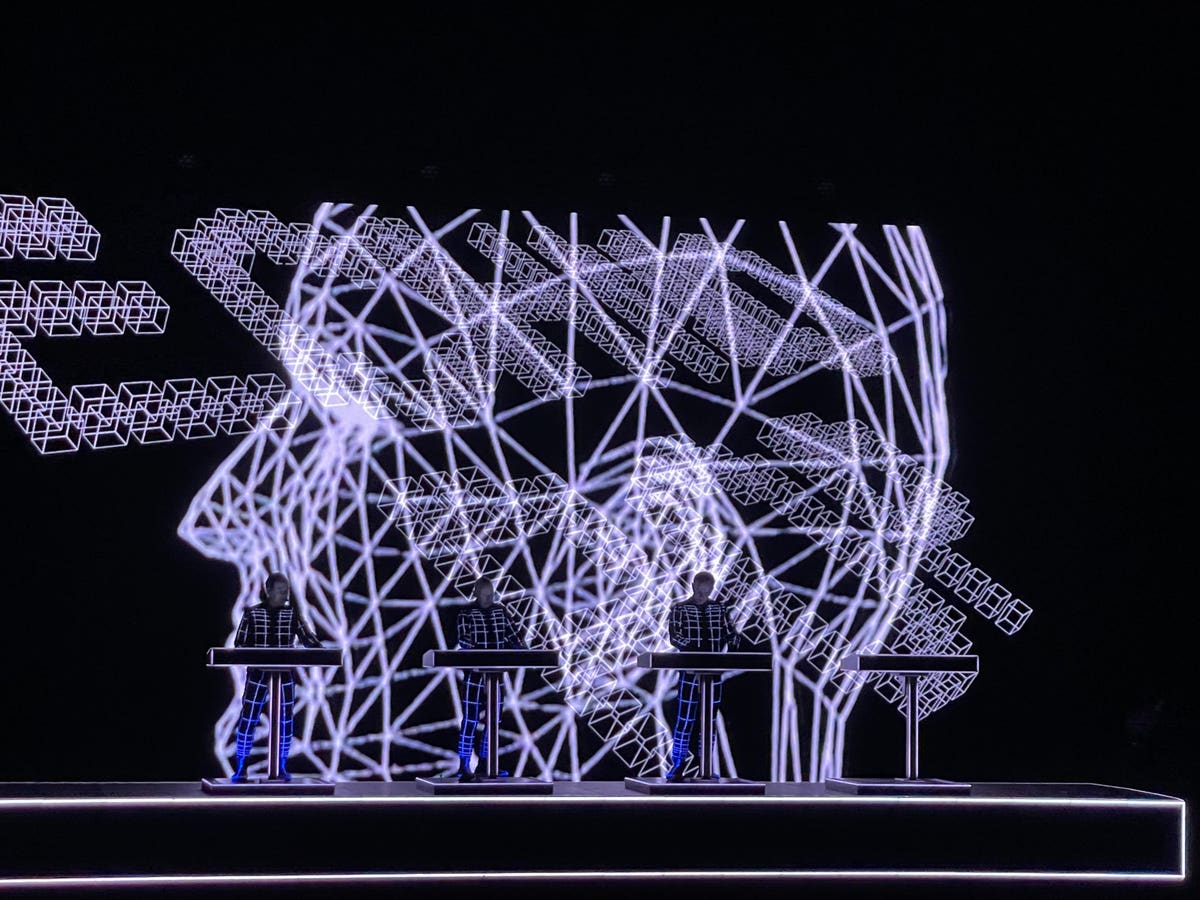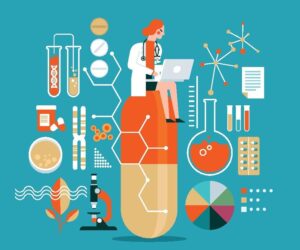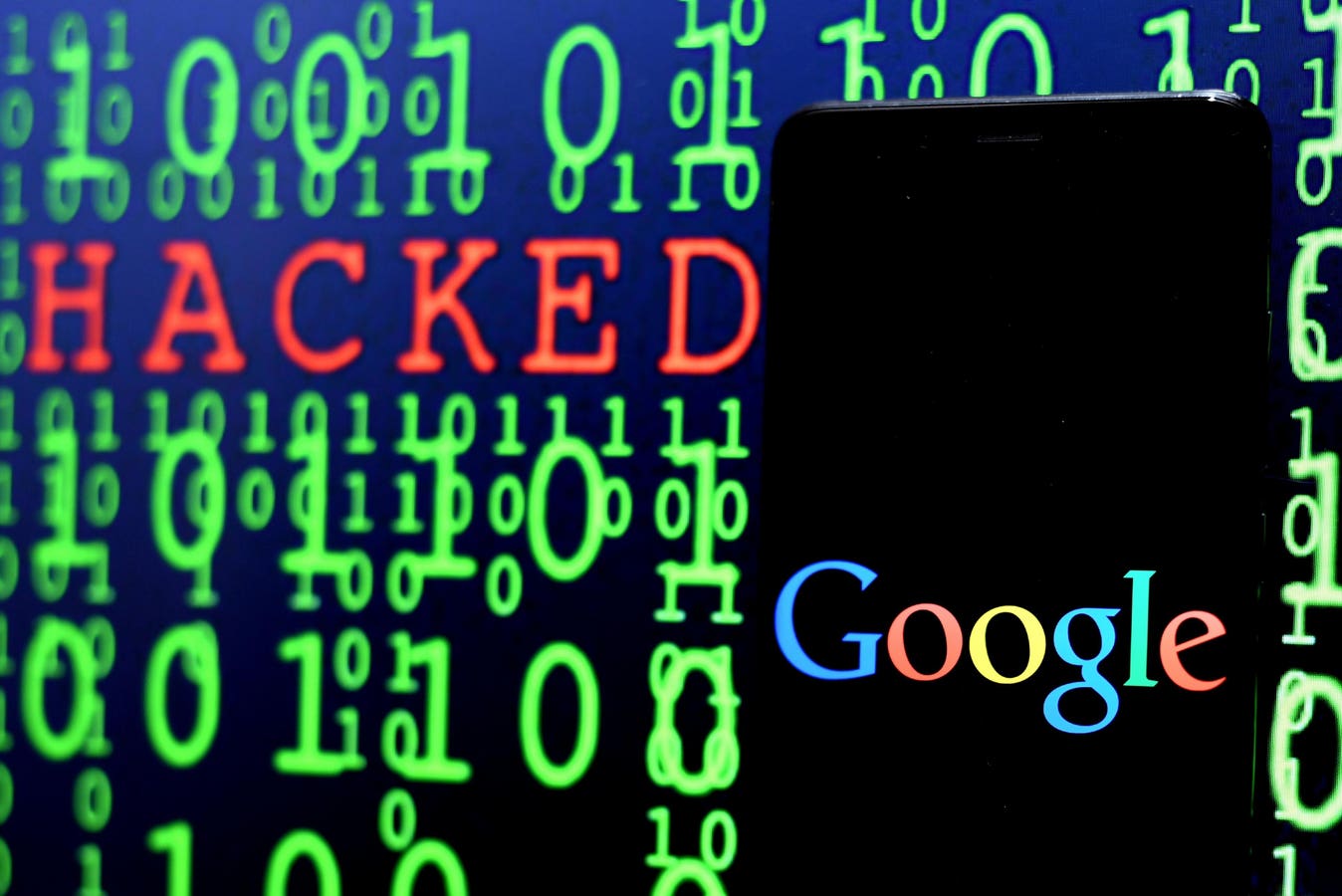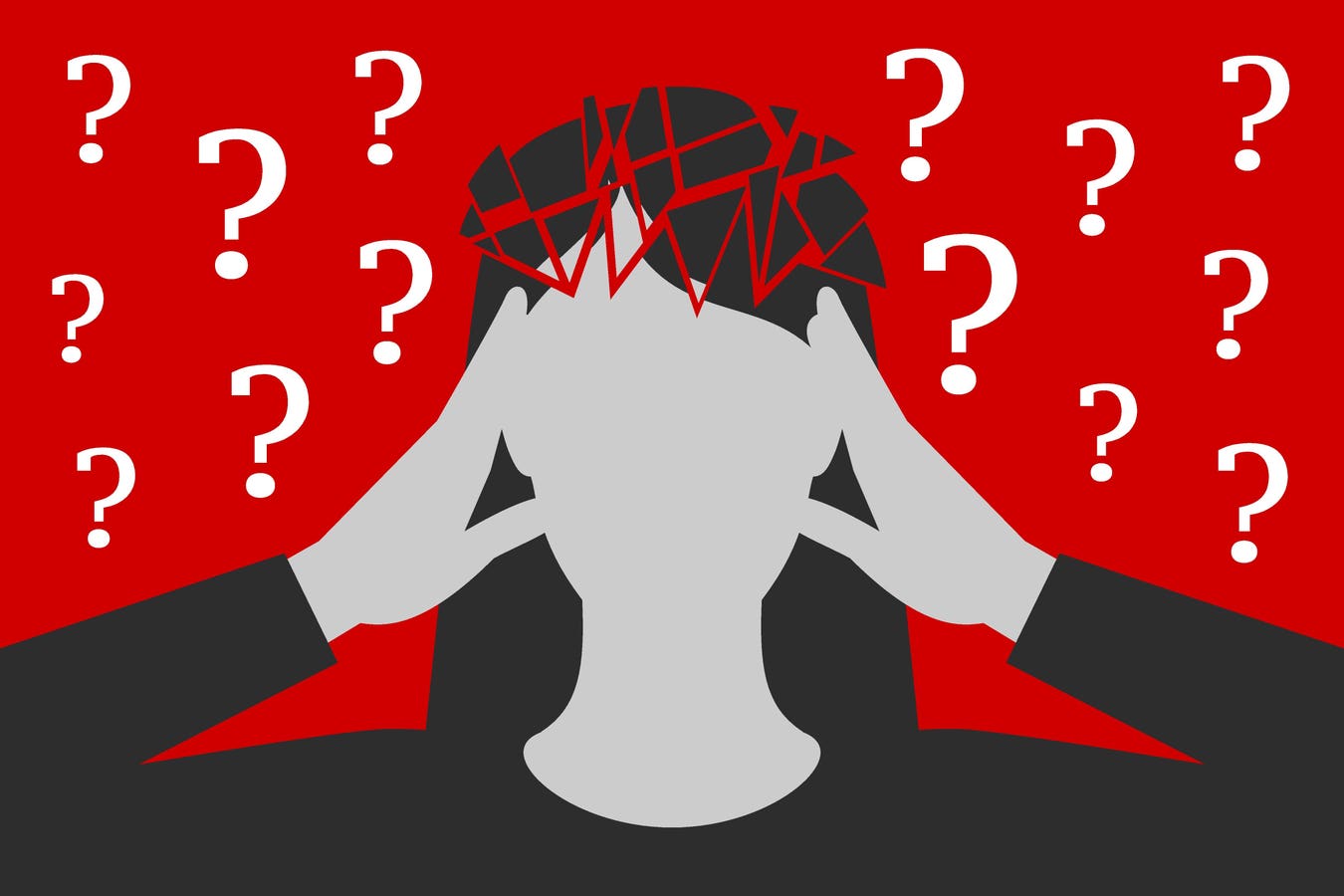OpenAI’s Sam Altman arrives for a Senate Commerce, Science, and Transportation Committee hearing in … More
In the not-so-distant future, step into any forward-thinking company and you’ll notice something remarkable. The most valuable team members are not just specialists in one domain. They are AI polymaths. Like Renaissance figures for the digital age, they blend creativity, technical savvy, and mastery of digital tools to tackle a wide array of challenges, often at a moment’s notice. Traditional job descriptions no longer confine these individuals. Instead, they orchestrate projects, wielding a suite of AI agents and platforms. Think Gamma for presentations, NotebookLM for data synthesis, or custom-built agents that automate workflows. In this new landscape, the question is no longer “What is your job title?” but “What can you make happen with the tools at your fingertips?” Thus begins the renegotiating of the social contract of work as we know it.
Shopify exemplifies this shift. CEO Tobi Lütke has made it clear that “using AI effectively is now a fundamental expectation at Shopify.” Employees must integrate it into their daily work, from drafting product descriptions with Shopify Magic to automating translations and email responses with specialized bots. Before hiring, managers must prove that AI cannot handle the task. This policy will create a culture where employees are experimenting with and mastering new tools, enabling them to tackle diverse challenges independently or as orchestrators of hybrid teams. The result is a workforce where adaptability and digital fluency are prized, and the most successful harness AI to amplify their capabilities and impact.
This trend is emerging now because the constraints that made intelligence and expertise scarce are dissolving. With “intelligence on tap,” meaning AI agents that can reason, plan, and act, knowledge isn’t limited by who you can hire or how many specialists you can afford. The rapid adoption of digital labor is closing the gap between business demands and human capacity, allowing organizations to scale and adapt faster. As AI automates routine and technical tasks, the real differentiator becomes the ability to integrate knowledge across fields, manage hybrid teams of humans and agents, and deliver value in novel ways. In this landscape, adaptability, curiosity, and the willingness to direct both human and digital talent are the most important skills.
From Org Charts to Work Charts
This shift is more than a tech upgrade. It’s a structural revolution. For decades, organizations have been built around fixed roles and rigid hierarchies. Now, as intelligence becomes scalable, ambient, and available like electricity, the old org chart is giving way to the “work chart.” Teams form and dissolve around projects, not departments. The AI polymath thrives here, assembling the right combination of human and digital talent for each challenge, then moving on to the next. In this model, employment becomes a series of high-impact, short-to-medium-term projects, each demanding a fresh mix of skills and tools, leaving traditional job security in the digital dust.
In the age of frontier firms, as Microsoft puts it, every worker is expected to become an agent boss. They’ll manage and delegate AI tools and amplify their impact by orchestrating digital colleagues. Not just seasoned leaders. Junior employees can now manage teams of AI agents, performing work that took years of experience. The result? The traditional career ladder is being replaced by a launchpad where your trajectory is defined by your ability to scale yourself and your ideas through intelligent agents.
The 2025 Work Trend Index Annual Report by Microsoft, developer of Copilot and a major investor in … More
The New Social Contract: Flexibility, Agency, and Uncertainty
This transformation goes beyond efficiency and productivity. It’s rewriting the social contract of jobs. The boundaries between roles blur. The promise of lifelong employment fades. Workers gain flexibility and agency, but not without uncertainties. Will your skills remain relevant as AI evolves? How do you build a reputation or sense of belonging when your team changes quarterly? These are the new questions AI-powered workplaces will face.
In a conversation with Harvard Business School, Sam Altman observes that the rise of AI will compel us to rethink jobs and society. He’s absolutely right. How will we provide security, opportunity, and meaning in a world where machines are partners, not tools? The outcomes of today’s rigorous policy debates around universal basic income, lifelong learning, and updated labor protections will significantly shape tomorrow’s workplace.
Beyond theoretical discussions, concrete initiatives are underway. Singapore’s SkillsFuture provides citizens with credits for continuous education and retraining, acknowledging the shrinking half-life of technical skills. The UAE is offering universal access to ChatGPT Plus for its citizens, democratizing advanced AI capabilities as a public good and positioning Gen AI literacy as essential national infrastructure.
In the corporate realm, Salesforce’s quarterly Agentforce Learning Days give employees “judgment-free time” to experiment with AI tools, easing the transition as roles evolve. Accenture’s Technology Quotient (TQ) program assesses and develops workers’ technological literacy, providing personalized learning pathways to build AI competencies. These initiatives recognize that adapting to AI requires more than new tools. It demands cultural transformation and space for experimentation.
The stakes extend beyond economics into identity and purpose. For generations, work has provided income, structure, community, and meaning. If the AI polymath model dominates, with its emphasis on project-based tasks and fluid teams, how will we replace these social functions?
Some organizations are experimenting with new community structures, digital guilds that provide continuity and belonging despite changing assignments. Others are redesigning physical workspaces to facilitate human connections, even as more work becomes digital. These are not mere operational considerations but fundamental questions about organizing society when the traditional employment relationship no longer serves as its backbone.
AI excels at automation and optimization. However, human ability to connect, imagine, and navigate ambiguity remains irreplaceable. The best polymaths don’t just get things done. They see possibilities others miss, bringing together people and machines to create new value. The future of work belongs to those who can scale their impact by working smarter, not harder.
The social contract of work is being renegotiated in real time. AI polymaths are at the forefront, blending human ingenuity with digital power. The future is being written—one project, one agent, one polymath at a time. The question isn’t if this change will come, but if you’re ready to move with it.

